2020年全体会员大会暨年会
2020 Annual Conference
![]()
DATE, ZOOM INFO & AGENDA
Annual conference link QR code.
Scan to open on a cell phone.
NEW! Scroll down for JOB OPENINGS!
♦ Saturday, Dec. 12th, 2020
♦ Zoom Meeting ID: 913 1301 5759 (passcode: scba2020)
This year we have lined up 5 outstanding speakers (3 from east coast and 2 from Seattle) in the field of COVID-19 including both basic and clinical research.
♦ Detailed agenda (Pacific Standard Time, 太平洋时间)
1:00 PM – 1:30 PM Check-in and Social time
1:30 PM – 1:40 PM Dr. Qiang Tian 田强致开幕词
1:40 PM – 2:20 PM Invited Speaker Dr. Shan Lu 卢山博士
2:20 PM – 3:00 PM Invited Speaker Dr. Xihong Lin 林希虹博士
3:00 PM – 3:40 PM Invited Speaker Dr. Shan-Lu Liu 刘善虑博士
3:40 PM – 4:00 PM Sponsors Presentation Session
4:00 PM – 4:40 PM Invited Speaker Dr. James R. Heath
4:40 PM – 5:20 PM Invited Speaker Dr. Haodong Xu 徐浩东博士
5:20 PM – 5:40 PM Dr. Qiang Tian 田强协会年度工作报告
5:40 PM – 5:55 PM 增补理事选举 Voting
5:55 PM – 6:25 PM Other Business 协会其它事项之讨论
6:25 PM – 6:30 PM Dr. Jie An 安杰致闭幕词
6:30 PM – Meeting close & Social time
![]()
MEETING/MEMBERSHIP REGISTRATION
Meeting scientific programs are open and free to all attendees.
Registered SCBA members have the rights to vote and to be elected plus free meeting dinner and free or reduced summer BBQ for future in-person events.
The 2020~2021 membership fee is waived due to COVID-19 pandemic except for permanent members, for all old and new members, please register either online http://scbahome.org/membership or through SCBA email office@scbahome.org to become an active SCBA member.
![]()
DISTINGUISHED ACADEMIC SPEAKERS
Shan LU, MD, PhD, FACP, FISV (卢山 博士)
Professor, Department of Medicine, University of Massachusetts Medical School
“COVID-19 Vaccines: Progress and Impact”
Dr. Shan Lu is a physician scientist and a global leader in vaccine science. He is a Full Professor with Tenure in the Department of Medicine at the University of Massachusetts Medical School, USA. Dr. Lu is Former President and current board member of International Society for Vaccines (ISV) and Editor-in-Chief of Emerging Microbes & Infections (EMI). He is the Organizer for ISV 2020 Global COVID-19 Vaccine Virtual Congress Series and Member of WHO nucleic acid vaccine guideline committee. Dr. Lu is a global leader in HIV vaccine development with candidates in clinical studies and has over two decades of frontline US clinical practice experience in Internal
Abstract
History and challenges of vaccines against emerging infections
The global COVID-19 vaccine effort based on different technical platforms
US Phase III efficacy trials under the framework of US FDA EUA
Global supply chain and priority use of COVID-19 vaccines
Overlap between active and passive immunizations
Impact of COVID-19 vaccines as part of the global public health system
Xihong LIN, PhD (林希虹 博士)
Professor, Department of Biostatistics & Department of Statistics, Harvard University
“Learning from COVID-19 Data in Wuhan, USA and the World on Transmission, Health Outcomes and Interventions”
Dr. Xihong Lin is a Professor and Former Chair of Biostatistics, Coordinating Director of the Program in Quantitative Genomics of Harvard TH Chan School of Public Health, and Professor of Statistics at Harvard University, and Associate Member of the Broad Institute of MIT and Harvard. Dr. Lin’s research interests lie in development and application of scalable statistical and computational methods for analysis of massive data from genome, exposome and phenome, such as large scale Whole Genome Sequencing studies, integrative analysis of different types of data, biobanks, and complex epidemiological and observational studies. She is an elected member of the US National Academy of Medicine. Dr. Lin received the 2002 Mortimer Spiegelman Award from the American Public Health Association, the 2006 Presidents’ Award and the 2017 FN David Award from the Committee of Presidents of Statistical Societies (COPSS). She is the PI of the Outstanding Investigator Award (R35) from the National Cancer Institute, and the contact PI of the Harvard Analysis Center of the Genome Sequencing Program of the National Human Genome Research Institute. She has been active in COVID-19 research.
Abstract
COVID-19 is an emerging respiratory infectious disease that has become a pandemic. In this talk, I will first provide a historical overview of the epidemic in Wuhan. I will then provide the analysis results of 32,000 lab-confirmed COVID-19 cases in Wuhan to estimate the transmission rates using Poisson Partial Differential Equation based transmission dynamic models. This model is also used to evaluate the effects of different public health interventions on controlling the COVID-19 outbreak, such as social distancing, isolation and quarantine. I will present the results on the epidemiological characteristics of the cases. The results show that multi-faceted intervention measures successfully controlled the outbreak in Wuhan. I will next present transmission regression models for estimating transmission rates in USA and other countries, as well as factors including intervention effects using social distancing, test-trace-isolate strategies that affect transmission rates. I will present the analysis results of >500,000 participants of the HowWeFeel project on symptoms and health conditions in US, and discuss the risk factors of the epidemic. I will discuss estimation of the proportion of undetected cases, including asymptomatic, pre-symptomatic cases and mildly symptomatic cases, the chances of resurgence in different scenarios, and the factors that affect transmissions. I will provide several takeaways and discuss priorities.
Shan-Lu LIU, MD, PhD (刘善虑 博士)
Professor and Co-Director Viruses and Emerging Pathogens Program, The Ohio State University
“SARS-CoV-2: Evolution, Entry and Immunity to infection”
Dr. Shan-Lu Liu is a Professor and Director of the Viruses and Emerging Pathogens Program of the Infectious Diseases Institute at the Ohio State University. He received his Ph.D. degree from University of Washington/Fred Hutchinson Cancer Research Center in 2003. He was named as Canada Research Chair in Virology and Gene Therapy when he was on faculty of McGill University during 2005-2010. His current research is focused on virus-host interaction, particularly host intrinsic restriction of viral infection, including HIV, Ebola virus, and Zika virus.
Abstract
Emerging and re-emerging viruses spread globally without borders. In the past 40 years, the world has witnessed outbreaks of HIV/AIDS, swine flu, SARS, MERS, Ebola, Zika, and more recently COVID-19. SARS-CoV-2 evolves from viruses of bats and is likely transmitted to human through intermediate animal species. Phylogenetic analyses show that SARS-CoV-2 is under purifying selection, suggesting that the virus has been adapted to humans before it is first discovered. As the virus replicates, SARS-CoV-2 gives rise to new variants with increased replication fitness and spread capacity, which could make vaccine and therapy less effective. Ultimately, protection from re-infection of SARS-CoV-2 would depend on the intensity and duration of initial host immunity to viral infection. Recent data suggest that seasonal coronavirus infection may also offer partial protection. In this talk, I will provide an overview of current understanding on SARS-CoV-2 evolution and entry, as well as host immune response to SARS-CoV-2 infection.
James R. Heath, PhD
President and Professor at Institute for Systems Biology, Professor of Molecular and Medical Pharmacology, UCLA
“Therapeutic Implications Extracted from Serial Analyses of COVID-19 Patients”
Dr. Heath is President and Professor at Institute for Systems Biology in Seattle. Heath also has the position of Professor of Molecular and Medical Pharmacology at UCLA, and he has directed the National Cancer Institute-funded NSB Cancer Center since 2005. Formerly, he was the Elizabeth W. Gilloon Professor of Chemistry at Caltech, and served as co-director of the Parker Institute for Cancer Immunotherapy at UCLA until 2017. Dr. Heath received his PhD in 1988 from Rice University, where he was the principal graduate student involved in the discovery of C60 and the fullerenes. He was a Miller Fellow at UC Berkeley before joining the research staff at IBM Watson Labs in 1991. He took a faculty position at UCLA in 1994, and moved to Caltech in 2003. He has received several awards and honors, including the Irving Weinstein Award from the American Association of Cancer Researchers, and the Sackler Prize in the Physical Sciences. He was named one of the top seven innovators in the world by Forbes Magazine. Dr. Heath has founded or cofounded several companies, including PACT Pharma, Integrated Diagnostics, Indi Molecular, Sofie Biosciences, Isoplexis, NanoSys, etc.
Abstract
We present an integrated analysis of the clinical measurements, immune cells, and plasma multi-omics of 139 COVID-19 patients representing all levels of disease severity, from serial blood draws collected during the first week of infection following diagnosis. We identify a major shift between mild and moderate disease, at which point elevated inflammatory signaling is accompanied by the loss of specific classes of metabolites and metabolic processes. Within this stressed plasma environment at moderate disease, multiple unusual immune cell phenotypes emerge and amplify with increasing disease severity. We condensed over 120,000 immune features into a single axis to capture how different immune cell classes coordinate in response to SARS-CoV-2. This immune-response axis independently aligns with the major plasma composition changes, with clinical metrics of blood clotting, and with the sharp transition between mild and moderate disease. Our study suggests that moderate disease may provide the most effective setting for therapeutic intervention.
Professor, Department of Laboratory Medicine and Pathology, University of Washington Medical Center
“Autopsy findings in the patients who died of COVID-19”
Dr. Haodong Xu graduated from Suzhou Medical College in 1987 and obtained his MS and PhD degrees in 1990 and 1993, respectively. He spent 5 years studying the molecular mechanisms of cardiac arrhythmias as a postdoctoral fellow, and 4 years in residency training at the Washington University School of Medicine in St. Louis. In July 2004, he began his new job as an Assistant Professor at the University of Rochester Medical Center, and was promoted to Associate Professor in 2007, then Full Professor in 2011. He was recruited by UCLA as a Professorin-Residency II in August 2013 and where his primary clinical interests are in heart, lung, head and neck, and autopsy pathology. He was the section Chief of Head and Neck pathology. He was recruited by the University of Washington as a Professor with tenure in July 2017. He is a Director of Cardiovascular Pathology, Pulmonary Pathology, Cardiovascular and Pulmonary Pathology fellowship program and histopathology and biospecimen core in the Fred Hutchinson Cancer Research Center Lung Spore. He has been pursuing translational lung cancer and basic cardiovascular research. In particular, his lab has been focusing on the study of mechanisms of cardiac arrhythmias for many years. His robust research program has been supported by National Health Institute (NIH) K08 and R01 grants, and American Heart Association (AHA) Grant-in-Aid Award and Transformational Project Award.
Abstract
SARS-CoV-2, the novel coronavirus that was discovered in 2019, causes an acute respiratory disease called coronavirus disease 2019 (COVID-19). SARS-CoV-2 is highly transmissible among humans; mortality rates for COVID-19 vary and are higher among the elderly and persons with underlying conditions or immunosuppression. SARS-CoV-2 uses angiotensin-converting enzyme 2 (ACE2) receptor to gain entry into human cells, aided by an enzyme, transmembrane protease serine-type 2 (TMPRSS2). Histopathological features in fatal cases of COVID1-19 have been documented in the literature and SARS-CoV-2 has been localized in the targeted cells by transmission electron microscopic examination, immunohistochemistry and in-situ hybridization. The talk will cover the initial discovery and cell entry mechanisms of SARS-CoV-2, pathology findings in patients who died of COVID-19 and clinical-pathologic correlation of COVID-19.
![]()
SPONSOR'S TALK
Title: An Arsenal of Covid-19 Research Reagents
Speaker: Rob Burgess, PhD. Chief Business Officer
Email: rob_burgess@sinobiological.com
Sino Biological is an internationally recognized reagent supplier and service provider specialized in recombinant protein production and antibody development. The company's ever-growing portfolio of products includes recombinant proteins, monoclonal antibodies, ELISA assay kits, expression clones, cell culture media, and other molecular biology tools. The company has a protein bank with over 6,000 proteins in-stock. Sino Biological is also dedicated to the study of infectious diseases and immunology. The ProVirTM collection is world's largest viral antigen bank, carrying over 800 products from 350 strains of viruses, including the world first recombinant antigens for the SARS-CoV-2 virus. More information can be found by visiting www.sinobiological.com.
![]()
COPYRIGHT DISCLAIMER
The SCBA 2020 Annual Conference is being conducted over Zoom. This conference will not be recorded. To protect unpublished materials presented during the conference, video or audio recording of lectures or the photography of slide by any means, including but not limited to taping, recording, photographing, screen capture and other methods of capture, by any participants for any purposes is prohibited. Thank you for your cooperation!
西雅图华人生物医学协会 2020年学术年会在Zoom上进行。该会议将不作任何录音或录像等记录。为了保护会议期间演示的未出版材料,禁止任何与会者对演讲内容包括幻灯片进行录像、录音、拍照、截屏以及其它任何方式的录制。谢谢合作!
![]()

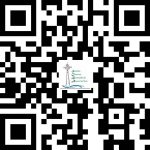
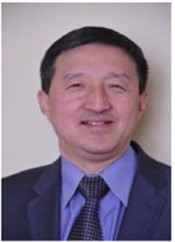
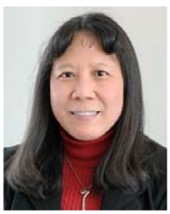
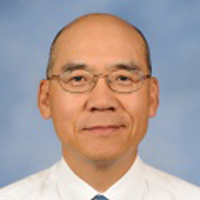
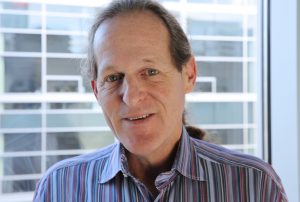
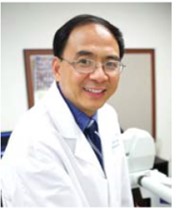
 Job Opening -- Sales Associate/Manager (Multiple)
Job Opening -- Sales Associate/Manager (Multiple)